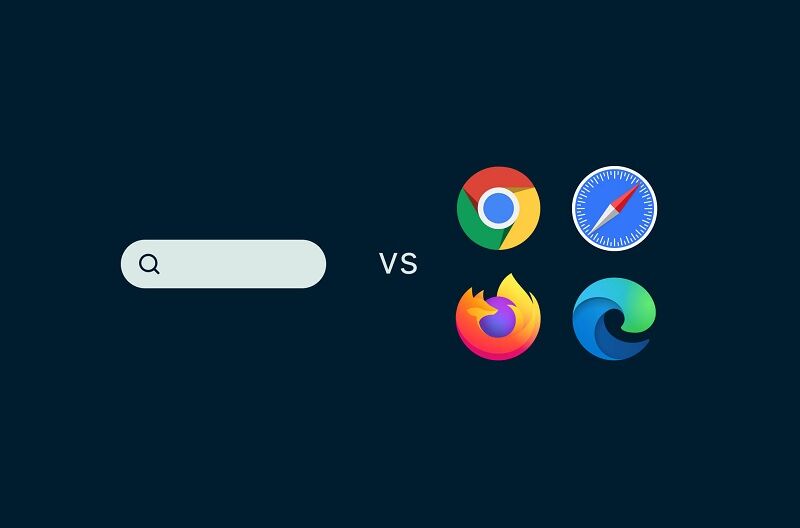How TikTok is overtaking Google as a search engine

With the continuous evolution of technology, change remains an integral part of our digital lives. A notable development in this realm is the rise of TikTok as a potential contender to Google in the search engine industry. Google, a pioneer for over twenty years, has consistently refined its algorithm, establishing itself as a synonym for speed, dependability, and flexibility. Yet, a new contender has now entered the ring.
In the battle of search engines, Google has long reigned supreme. The pros are undeniable. However, there’s been a growing shift in the digital landscape, one where TikTok begins to boast larger search volumes. According to a comprehensive research study by Rise at Seven, they found a surge in queries on TikTok, outweighing popular Google searches. Their study identified 100 words and phrases that netizens search more on TikTok than on Google. It’s a significant change, signalling a transformative shift in user preferences.
TikTok’s rise as a search engine
Investigating the motives behind these searches, nearly 73% of them gleaned were informational — that’s three out of every four searches. Meanwhile, the commercially motivated searches account for 21%, a number that might seem small in comparison but be mindful, that’s one in five, an impact that businesses can’t afford to ignore. More than that, TikTok’s search volumes are found to be a staggering 10 times more massive than Google’s in this sector.
So, what’s causing this noticeable shift? An element of novelty, yes, but it’s also due to TikTok’s position, not just as a search engine, but as a powerful e-commerce platform. That’s right; it’s threatening the likes of Google, and even major players such as Amazon.
The role of video content
One cannot ignore the power of video content that TikTok heavily emphasises. This emphasis isn’t just reflected but shapes the shift in user preference from traditional search engines like Google. It’s a trend that even Google conceded to as they began incorporating images and videos into their search engine. One signal is a feature of TikTok videos in some of their search results since 2019.
Flash-forward to 2020, Google has launched YouTube Shorts to compete, featuring vertical videos less than a minute long, and integrated these videos into their search results, in an attempt to reclaim users.
The search process on TikTok is unequivocally more engaging than typing queries into Google’s search box. TikTok’s video-based, community-driven recommendations spark a distinctive interaction and camaraderie between users. Far from mere text-based search results that Google spews, video results from TikTok allow users to absorb the content piece by piece, evaluating its veracity through community responses evidenced in comments.
Generation Z’s preferences

Starting a discussion on Generation Z’s preferences, it’s crucial to understand why this demographic shows an affinity towards TikTok over Google. Opening the discussion on this demographic shift moves us towards an understanding of how this impacts traditional search engines.
Why this demographic prefer TikTok
Tweaking this study promotes constructive understanding. The survey population consisted of 1,821 US individuals, predominantly female and college students. It’s worth noting that the findings are based on a group highly active on social media, affirming the ascendancy of TikTok in this demographic.
Users crowdsource recommendations from multiple videos, verify suggestions based on comment sections, and shape a collective transition from traditional content consumption. A casual day involves looking up information, learning tax reduction hacks on an $1100 iPhone, or enjoying parodies of Apple Store interactions.
The impact on traditional search engines
A pivotal result of this shift is the substantial impact it imposes on traditional search engines like Google. As TikTok emerges as a search trend among Gen Z, Google has found itself repurposing strategies to retain its users. For instance, Google adopted the addition of images and videos into its search engine, with TikTok videos being featured in searches since 2019. Another strategic move has been the launch of YouTube Shorts in 2020 – a platform designed for sharing vertical videos of less than a minute, directly contesting TikTok’s popularity.
Adapting to new search behaviours
Adapting to the Gen Z’s new search behaviours is vital for marketing success. The old playbook from Google’s era might not work as effectively, so you will need to develop new strategies. In contrast to typing queries on Google, engaging with TikTok videos and receiving search results based on past interactions, positions the platform as far more interactive. Developing content that aligns with TikTok’s short-form, video-based, and interactive milieu, chiefly those that can sustain engagements and affirm the veracity through comments, might amplify your success on this platform.
Comparing TikTok and Google
Let’s delve into the stark differences between Google’s traditional way of finding information and TikTok’s unique approach.
Differences in search mechanisms
Google, as you already know, operates based on queries. You type in a keyword, and Google searches its vast index of the internet to provide the most relevant results. On the other hand, TikTok introduces a whole new method. This application, predominantly popular among Generation Z, leverages its algorithm to present a stream of videos tailored to your interests. Unlike Google, where you explicitly search for content, TikTok shares content it believes you’ll find appealing.
For instance, Google has utilised images and videos in its search engine for years. TikTok, meanwhile, immerses users in video content from the get-go, offering a far more interactive engagement. As described by Rise at Seven’s report, TikTok users don’t merely browse through walls of text, they actively engage and participate, finding value in every video.
Content efficacy and user engagement
The different ways these platforms deliver information impact user engagement. TikTok, unlike Google, does not just rely on algorithms and data. It integrates user input, creating an immersive, community-based information-sharing experience. This intricate network of shared experiences and curated content sparks an incredible level of user engagement.
Results from Rise at Seven’s study show a significant shift in preference towards TikTok, with search volumes for certain categories even exceeding those of Google. For example, TikTok received over a whopping 823 million searches for BMW, marking an immense 75 million more than what Google experienced.
The future of search engines

In navigating the vibrant landscape of search tools, TikTok and Google provide a curious juxtaposition. This contrast signifies a crucial juncture in our dialogue on digital communications.
Potential developments
TikTok’s primary advantage lies in its video-centric nature, offering a fresh user experience eye-catchingly different from Google’s text-oriented approach. Moreover, TikTok’s algorithm strongly prioritises engagement, continually tweaking recommendations based on user interactions. This feature, combined with the app’s visually rich content, makes it considerably appealing to younger users. In contrast, Google remains a dominant platform due to its comprehensive data and holistic results.
Implications for digital strategy
Such tides of change exercise paramount influence on digital strategies, making it imperative for businesses to adjust their tactics. To engaging Gen Z and newer audiences, and in preparation for prospective shifts, it is prudent to incorporate visually rich and engaging content into your SEO strategy. This would ensure better visibility on all platforms, including TikTok and Google – championing the fusion of text-based and visually enticing content.
The rise of TikTok suggests that the future of search engines is fluid. To maintain visibility and relevance, you must continually adapt your strategies to integrate with the shift from traditional text-based search to more engaging, personalised, visual content. Welcome to the vibrant future of search engines.
You can also check out wearable technology innovations and applications, This advanced sector is instigating transformations across industries, improving worker safety, elevating performance levels, and diligently focusing on health. From sophisticated smartwatches to comprehensive activity trackers, wearable technology is not an aspect of a futuristic vision, it is firmly situated in our contemporary reality, inducing revolutionary changes in our lifestyles and professional lives.
Latest Thailand News
Follow The Thaiger on Google News:


























